News

January 12, 2022
Researchers from the U.S. Department of Energy’s Lawrence Berkeley National Laboratory (Berkeley Lab) will join fellow industry leaders in a coalition to bring to market new technologies and products to address the converging crises of housing, economic inequity, supply chain volatility, and climate change in California and the U.S. In particular, the team will be working with the construction...
Read more
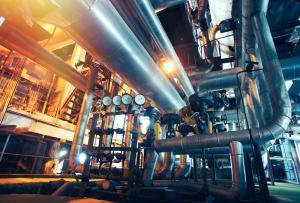
December 21, 2021
Every year, 50% of the energy produced worldwide from coal, oil, natural gas, nuclear, and renewable energy sources is lost as heat. This untapped resource could be a promising additional source of useful energy, and for decades, scientists have worked to develop efficient systems to convert waste heat to electric power. In a recent study published in Joule, Berkeley Lab researchers developed a...
Read more

December 13, 2021
Dramatic cost reductions over the last decade in battery storage and wind and solar energy position India to leapfrog to a more sustainable system for delivering affordable and reliable power to serve near a doubling in electricity demand by 2030, according to a new study by researchers at the U.S. Department of Energy’s Lawrence Berkeley National Laboratory (Berkeley Lab). India, with a...
Read more
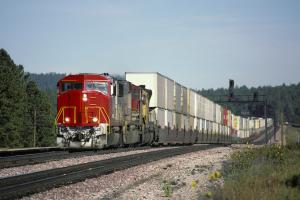
November 23, 2021
Trains have been on the sidelines of electrification efforts for a long time in the U.S. because they account for only 2% of transportation sector emissions, but diesel freight trains emit 35 million metric tons of carbon dioxide annually and produce air pollution that leads to $6.5 billion in health costs, resulting in an estimated 1,000 premature deaths each year. What’s more, these deaths and...
Read more

November 18, 2021
Could a tank of ice or hot water be a battery? Yes! If a battery is a device for storing energy, then storing hot or cold water to power a building’s heating or air-conditioning system is a different type of energy storage. Known as thermal energy storage, the technology has been around for a long time but has often been overlooked. Now scientists at Lawrence Berkeley National Laboratory...
Read more

November 17, 2021
Carbon dioxide (CO2), a product of burning fossil fuels and the most prevalent greenhouse gas, has the potential to be sustainably converted back into useful fuels. A promising route for turning CO2 emissions into a fuel feedstock is a process known as electrochemical reduction. But to be commercially viable, the process needs to be improved, to select for, or to yield, a higher amount of...
Read more
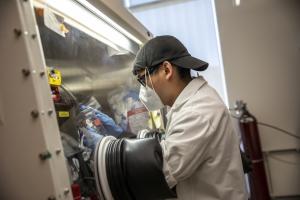
November 8, 2021
Berkeley Lab has been awarded more than $13 million for five research projects that will accelerate the development of advanced lithium batteries and smart, connected vehicles, making it easier to switch to electric vehicles. The awards were announced by the Department of Energy and are part of a total of $209 million in battery research projects selected by DOE’s Vehicle Technologies Office....
Read more

November 8, 2021
A team led by Wei Tong of the Applied Energy Materials Group in the Energy Storage and Distributed Resources Division is one of three Berkeley Lab winners of an R&D 100 Award for 2021. The team developed a unique layered-rocksalt intergrown cathode material for a new generation of lithium-ion batteries that offers higher capacity, faster charging time, superior cycling, thermal stability, and...
Read more

November 5, 2021
The U.S. Department of Energy (DOE) Building Efficiency Targeting Tool for Energy Retrofits (BETTER) is a free, award-winning online tool developed by Berkeley Lab with support from DOE’s Building Technologies Office (BTO) that increases the speed and scale of energy retrofit identification in commercial buildings. The virtual tool enabled one California state agency to avoid audit costs of $3.3...
Read more
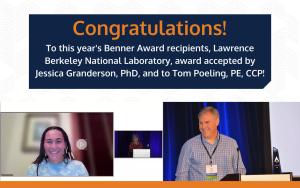
November 4, 2021
Berkeley Lab received the prestigious Benner Award at the Building Commissioning Association (BCxA) 2021 Annual Conference October 7, 2021. Berkeley Lab was recognized for its outstanding leadership in the area of commercial building commissioning, which is a systematic and intensive quality assurance process that ensures greater energy efficiency, enhanced safety, and lower building operation,...
Read more
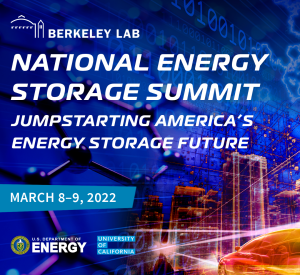
November 4, 2021
Exponential energy storage deployment is both expected and needed in the coming decades. To that end, the U.S. Department of Energy's Lawrence Berkeley National Laboratory (Berkeley Lab) is hosting a summit on March 8 and 9, 2022, to discuss harnessing science, technology, and policy to accelerate energy storage solutions for our nation. The virtual public summit will convene and connect national...
Read more

November 3, 2021
States are increasingly recognizing equity as a goal of utility regulation, going beyond traditionally stated objectives to ensure that electricity systems are reliable, safe, and fairly priced. But they are just beginning to grapple with how to achieve this goal. A new report from Lawrence Berkeley National Laboratory (Berkeley Lab), Advancing Equity in Utility Regulation, provides four...
Read more

November 2, 2021
Rechargeable lithium-metal (Li-metal) batteries offer an opportunity to improve on the energy storage density of current lithium-ion batteries and meet the demand of new markets, such as long-range EVs or electric planes. However, they face major performance hurdles related to safety and quickly declining performance. Researchers at the Department of Energy’s Lawrence Berkeley National...
Read more

October 8, 2021
Earlier this summer, Energy Secretary Jennifer M. Granholm launched the U.S. Department of Energy’s (DOE’s) Energy Earthshots Initiative, and the first Energy Earthshot is the “Hydrogen Shot,” with the goal of accelerating development and deployment of clean hydrogen across sectors. DOE’s Lawrence Berkeley National Laboratory (Berkeley Lab) plays a leading role in the research and...
Read more
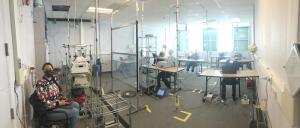
September 23, 2021
Having good room ventilation to dilute and disperse indoor air pollutants has long been recognized, and with the COVID-19 pandemic its importance has become all the more heightened. But new experiments by indoor air researchers at Lawrence Berkeley National Laboratory (Berkeley Lab) show that certain circumstances will result in poor mixing of room air, meaning airborne contaminants may not be...
Read more

September 4, 2021
BETTER wins the 2020 LBNL Director's Award for Exceptional Achievement in Technology Transfer which recognizes the BETTER team's exemplary efforts in building relationships with industry to advance the science of data-driven, remote building energy analysis to improve building energy efficiency at speed and scale worldwide. https://recognition.lbl.gov/2020-laureates/...
Read more

September 1, 2021
Science innovators are invited to apply for the two-year fellowship program hosted at Cyclotron Road, an opportunity to advance hard technologies that have the potential for broad societal impact from concept to viable first product. Cyclotron Road is a division of the Department of Energy’s Lawrence Berkeley National Laboratory (Berkeley Lab). The fellowship program is run in partnership with...
Read more
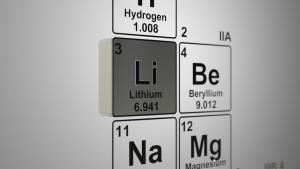
September 1, 2021
Researchers at the Department of Energy’s Lawrence Berkeley National Laboratory (Berkeley Lab), in collaboration with their partners in the US and Germany, envision a future of safe, high-performance rechargeable lithium-metal (Li-metal) batteries in a recent publication by Nature Reviews. Today’s rechargeable lithium-ion (Li-ion) batteries —the type commonly found in electric vehicles,...
Read more
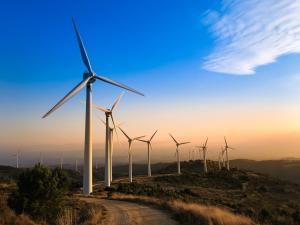
August 31, 2021
Wind energy continues to see strong growth, solid performance, and low prices in the U.S., according to a report released by the U.S. Department of Energy (DOE) and prepared by Lawrence Berkeley National Laboratory (Berkeley Lab). With levelized costs of just over $30 per megawatt-hour (MWh) for newly built projects, the cost of wind is well below its grid-system, health, and climate benefits....
Read more

August 17, 2021
The journal Spectrochimica Acta Part B: Atomic Spectroscopy dedicated its May issue to Rick Russo, a former senior scientist at Lawrence Berkeley National Laboratory (Berkeley Lab) and founder of the Laser Technologies Group, in honor of his 70th birthday. Russo is one of the most influential scientists in the field of laser ablation spectroscopy and the recipient of a Berkeley Lab Prize Lifetime...
Read more

August 16, 2021
With a $2-million grant from the California Energy Commission (CEC), Berkeley Lab has developed a cost-effective thermoelectric waste-heat recovery system to reduce electricity-related carbon emissions. Industries such as the glass, cement, power, and steel sectors expel a huge amount of high-temperature waste heat. Converting this waste heat cost effectively to electricity can provide a...
Read more
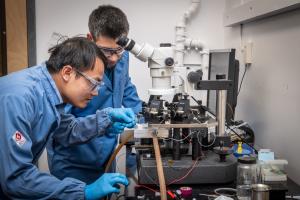
August 16, 2021
With rising interest in backup power, storage of solar energy, and electric vehicles, the race is on to improve the performance of rechargeable lithium batteries. A Berkeley Lab team has developed an easy, fast, and inexpensive method to measure battery performance. Led by Ravi Prasher and Sean Lubner of the Energy Technologies Area, the new technique uses thermal waves to measure local lithium...
Read more

July 30, 2021
All seventeen U.S. national laboratories and many prominent publishers, journals, and other organizations in scientific publishing announced today the beginning of a partnership to support name change requests from researchers on past published papers. Lawrence Berkeley National Laboratory (Berkeley Lab) is coordinating the effort. This agreement will allow researchers who wish to change their...
Read more
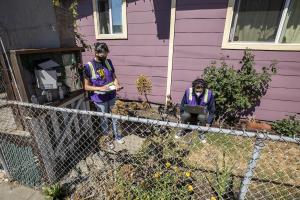
July 22, 2021
Companies like Purple Air and IQAir, with air pollution sensors that cost under $300, have brought air quality monitoring to the masses. But when Lawrence Berkeley National Laboratory (Berkeley Lab) scientist Tom Kirchstetter looked at Purple Air’s map last year during wildfire season, he noticed a big hole in Richmond, a city of 110,000 to the north of Berkeley. “You can see what appears to...
Read more

July 22, 2021
Since buildings consume 75% of electricity in the U.S., they offer great potential for saving energy and reducing the demands on our rapidly changing electric grid. But how much, where, and through which strategies could better management of building energy use actually impact the electricity system? A comprehensive new study led by researchers from the Department of Energy’s Lawrence Berkeley...
Read more